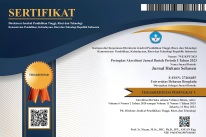Ownership And Control Of Land Rights In The Legal System Of Indonesia
Abstract
This research aims to conduct an in-depth analysis of the land law system in Indonesia using the Basic Agrarian Law (UUPA) as the primary guide. The objective is to understand the structure, mechanisms, and principles governing land ownership and control, as well as to identify and explain land rights regulated by the UUPA. The research method employed is normative legal research with data collection techniques through literature study to obtain comprehensive and relevant information. The data used consist of primary and secondary data obtained through literature study from various reference sources such as books, journals, and scholarly articles. The research findings conclude that significant changes have occurred in Indonesia's land regulation system since the enactment of the UUPA, including the dualistic aspect between customary law and Western law. The UUPA serves as a national legal product aimed at implementing the values of Pancasila and the goals of the state, as well as regulating the rights that individuals, entities, or associations can hold in Indonesia. The concept of land rights in national agrarian law is divided into primary and secondary rights, where primary rights include Ownership Rights, Right to Build, Right to Cultivate, and Right to Use, while Management Rights are additional rights received by holders from the state.
Downloads
Copyright (c) 2024 Lilik Warsito

This work is licensed under a Creative Commons Attribution-ShareAlike 4.0 International License.






